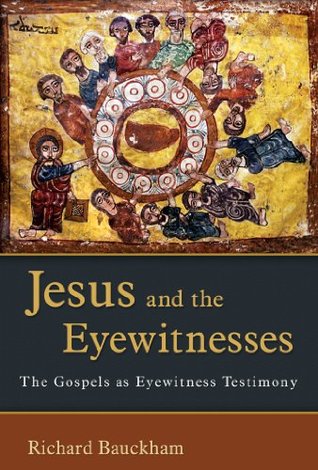More on this book
Community
Kindle Notes & Highlights
Read between
August 28 - October 13, 2015
which, like all the Gospel titles, was probably already attached to it when copies were first circulated.
We should note that the Greek word used in v. 2 for “eyewitnesses” (autoptai) does not have a forensic meaning,
That makes Luke a writer of “historical” narrative, but not necessarily a “
“I, on the contrary, have written a veracious account, at once comprehensive and detailed, of the war, having been present in person at all the events”
Luke’s full phrase, “those who were from the beginning eyewitnesses and ministers of the word” (1:2), almost certainly refers to a single
The argument of this book — that the texts of our Gospels are close to the eyewitness reports of the words and deeds of Jesus — runs counter to almost all recent New Testament scholarship.
From 1975 to 1984 the present writer was awash with such oral transmission in Beirut, Lebanon. A story of three people killed in a bread line in front of a bakery by a random shell quickly became a story of 300 people massacred in cold blood when the account was retold by angry compatriots of the victims.
interview (indirect autopsy).
It takes the Gospels seriously as they are; it acknowledges the uniqueness of what we can know only in this testimonial form.
There is no adequate way of telling the story without reference to God, for the uniqueness of what God does in this history is what makes it the unique and particular history it is.
This uniqueness of the events gives itself to be understood and interpreted by witnesses. Unlike the mere historian, the witness can testify to transcendental meaning and speak of God, not merely as a factor in Jesus’


